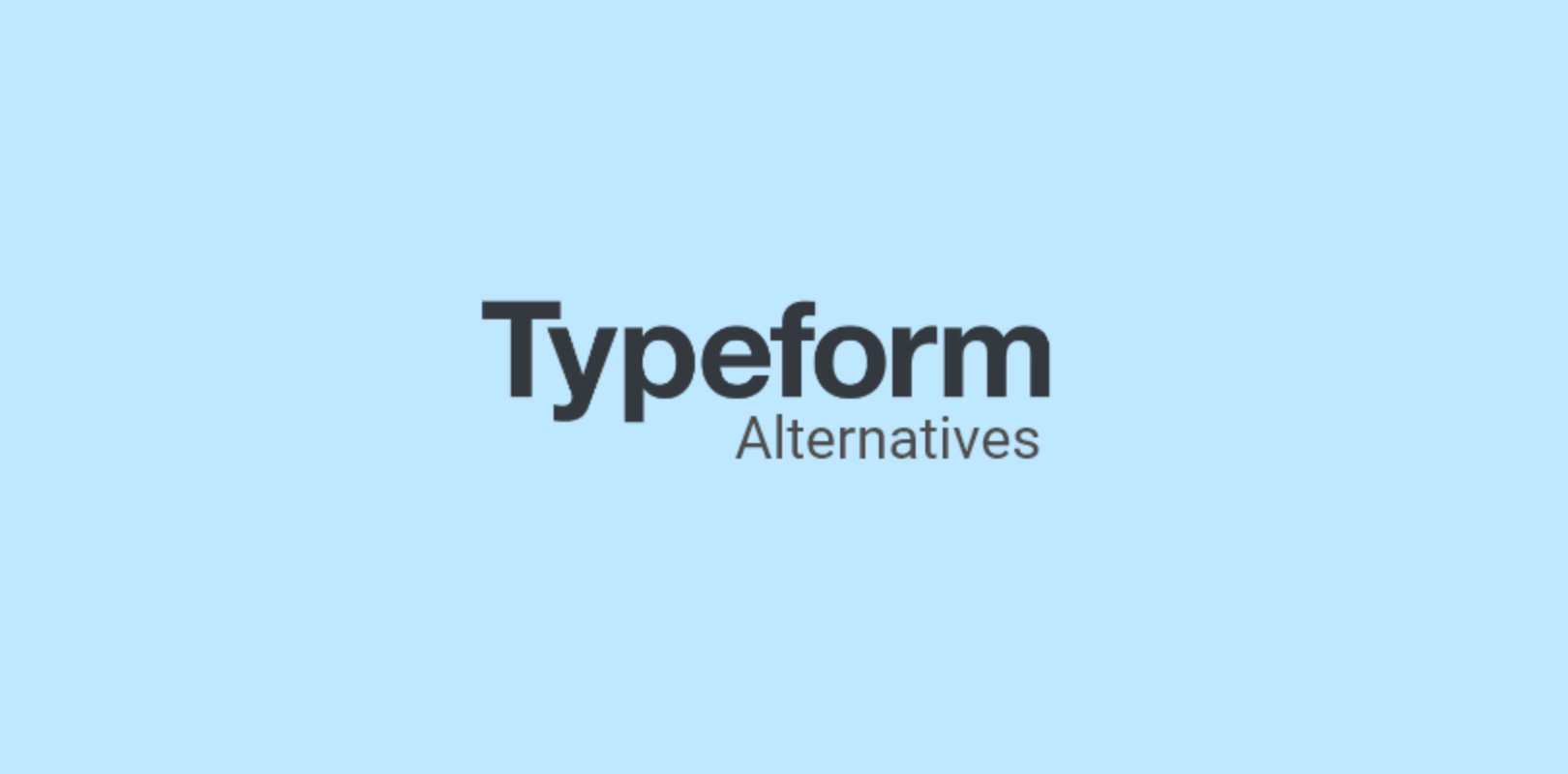
Lyssna, previously known as UsabilityHub, is a remote user research platform that helps you understand your audience and serve them better and faster. The company changed its name to reflect a broader offering and a bigger vision.
But that doesn’t alone seem to improve the underlying issues users have – for example, its high pricing, an unclear feedback system, and so on.
So, if investing $75 per month feels too much for your small team, I have six of the best Lyssna alternatives that simply offer better value for your money.
Let’s check them out.
6 Best Lyssna Alternatives: An in-Depth Comparison
I spent the last 3-4 months connecting with market leaders across industries (real estate, eCommerce, manufacturing, healthcare, etc.) to know which Lysnna surveys alternatives they would recommend.
The results I received were surprising as they mostly revolved around Hotjar, Qualaroo, SurveyMonkey, and others.
To help you make an informed decision, I’ve put together my personal experience and made a detailed comparison below. Hope it helps!
1. Qualaroo – Best for Contextual Surveys & AI-Powered Sentiment Analysis
First on my list is Qualaroo – a powerful alternative to Lyssna, known for its contextual surveys and AI-powered sentiment analysis feature.
The software uses IBM Watson’s sentiment analysis engine to uncover valuable insights in real time. By asking contextual questions, you can capture insights that are both timely and meaningful to customers.
For example, you can deploy an exit-intent survey to quickly identify why a customer is leaving a webpage and analyze their sentiment, allowing you to make necessary adjustments.
Other key features include survey templates, question branching, AB testing, and integrations. Besides, Qualaroo’s user-friendly interface and advanced targeting options make it a top choice among startups and small businesses looking to improve customer experience.
What you’ll like:
- Nudge technology ensures that survey questions are asked in a polite and non-intrusive manner
- AI capabilities that let you understand the emotional undertones of user feedback
- Real-time data collection capabilities, enabling prompt responses and timely improvements
- Question branching to ask different questions based on the user’s previous response
- Integrates with other popular tools, such as Salesforce and Zendesk
What you may not like:
- I hope they add more categories like ‘industry’ to their survey template library
- Survey preview may lag a little bit sometimes, but that rarely happens
Pricing: Qualaroo offers a forever free plan for startups and small businesses with all premium features. Paid starts at $19.99/month.
2. Hotjar – Best for Website Heatmaps

Where understanding user behavior is key, Hotjar emerges as a decent Lysnna alternative, offering an inside view into website interactions.
The software lets you discover website heatmaps – something I really like a lot! And it’s not just data; it’s a visual presentation that maps out the hottest zones on your website.
Heatmaps show where users move, click, and scroll. No more secrets with friction points! You can easily identify areas where users are getting stuck or abandoning forms and make necessary changes.
The software also offers a range of other powerful features, including visitor recordings, conversion funnels, and form analysis.
What you’ll like:
- Visitor recordings allow you to watch real users interact with your website
- Feedback polls to ask users questions about their experience on your website
- Conversion funnels to track how users move through your website, from landing page to conversion
- Form submission analysis to identify areas where users are having trouble and make changes to improve completion rates
- A/B testing tool to test different versions of your website against each other to see which one performs better
What you may not like:
- The free plan doesn’t show engagement zones or scores in heatmaps
- The software can sometimes slow down, especially when there are a lot of users on the platform
Pricing: A free plan is available for only 35 daily sessions. Paid options start from $32/month.
3. Maze – Best for AI-Powered Customer Insights

Maze offers a holistic solution that scales customer insights with AI-powered research. Imagine being able to conduct both moderated and unmoderated studies, building the right products faster – that’s what the software is about.
Compared to Lysnna pricing, it costs more. But it brings more value to the table. I’ll tell you about that briefly.
The best thing, according to me, is its AI-powered customer insights feature. This feature uses machine learning to analyze user feedback and identify key insights you might have missed – impressive stuff!
With Maze, you can create user tests in minutes, share them with your target audience, and collect valuable feedback. You can conduct A/B tests, measure user satisfaction, and track progress over time.
What you’ll like:
- Ready-made templates for content and usability testing, idea validation, feedback collection, etc.
- Lets you conduct user tests with physical prototypes or products without needing multiple devices
- Shows where users click, hover, and scroll on your prototypes to identify usability issues and optimize your design
- Automated analytics to generate visually rich and customizable reports, providing a clear view of the ROI
- Heatmaps that visualize user interactions, allowing you to identify areas of interest on a website or app
What you may not like:
- The free plan does not give you access to any AI features
- Some users feel the online user panel might not accurately represent their target audience
Pricing: A free plan is available for only one active project. Paid options start from $99/month.
4. Indeemo – Best for Video Surveys

Imagine a tool that transforms feedback into living narratives. Indeemo is that storyteller, elevating user insights through the immersive medium of video surveys.
With Indeemo, you can send customers video prompts and questions, and they can respond with videos, photos, and text messages in real-time. I think this rich, contextual data gives you a more transparent way to understand their thoughts and experiences at the moment.
But that’s not all.
The software also supports a variety of methods, such as digital ethnography, diary studies, pre-tasking, and journey mapping. Its AI-powered dashboard and research repository software contain powerful tools to store, analyze, and share real-life insights.
What you’ll like:
- Lets you conduct in-the-moment research with users anywhere in the world
- Leverages AI to automatically transcribe videos, identify keywords, and generate thematic reports
- Studies large groups of participants easily, making it ideal for complex research projects
- Various research methodologies like video surveys, mobile ethnography, diary studies, etc.
- Uncovers hidden needs and opportunities through in-depth exploration of user behavior
What you may not like:
- No pricing plans on the website make the process less transparent
- In countries with poor internet or Wi-Fi connectivity, videos can take longer to be uploaded
Pricing: Custom pricing plans.
5. SurveyLegend – Best for Mobile-Friendly Survey Templates

SurveyLegend can be one of the best Lyssna alternatives if you just want to drag and drop your way to beautiful, mobile-ready surveys in minutes. No coding or design experience required!
The highlight of my experience was the use of their survey templates. They offer a selection of professionally crafted templates for various industries, which saved me a lot of time and effort. Whether I was conducting academic research or gathering customer satisfaction data, there was always a template ready for use – something I really liked!
However, I could only create three surveys using the free plan, so I can’t tell how it would have flared for a wider range of survey topics. Regardless, the software also has advanced features like skip logic, branching questions, and logic jumps to create truly personalized surveys.
What you’ll like:
- A vast library of pre-built templates for diverse purposes, from employee satisfaction to event planning
- Gathers rich data with ‘picture selection’ and ‘image rating’ questions – ideal for visual feedback and product research
- Offline survey functionality – ensuring no data is lost due to connectivity issues
- Seamless collaboration with colleagues through advanced user roles and permissions
- Integrates with popular platforms like Salesforce and Mailchimp for effortless data management
What you may not like:
- Some users complained that obtaining results after completion of the surveys does not work properly; sometimes
- The free plan does not let you export survey responses
Pricing: A free plan is available for only 1000 responses per survey. Paid options start from $15/month.
6. Forsta – Best for Market Research

(Image Source: GetApp)
As a customer experience management professional, I find Forsta a great alternative to Lyssna.
The software’s customizable surveys allow you to gather insights from any audience, whether it’s a small team or a global community. You can collect data from any touchpoint or channel, providing a holistic view of your audience’s experience.
Using the software is like having a personal guide to help you navigate through the intricacies of market research.
From sample and panel management, comprehensive surveying, advanced analytics, and reporting to data visualization, Forsta has it all. It’s like having a bird’s eye view of your market, helping you deliver compelling research to any requirement.
The platform also integrates seamlessly with other CX and employee experience solutions – making it easy to break down data silos and gain a complete picture of your audience.
What you’ll like:
- Goes beyond traditional data points to understand the emotions, motivations, and behaviors of customers
- Integrates data from various touchpoints into a single platform for a holistic view of the human experience
- Real-time insights with quick, pulse surveys to capture the immediate thoughts of visitors
- Video responses to add a human touch to your data and gain a deeper understanding through reactions
- Eliminates errors and refines your surveys with the simulated data generator before going live
What you may not like:
- Not having a pricing plan on the website can make the process unnecessarily time-consuming
- Some users feel that the dashboard for non-developers should be more simplified
Pricing: Custom pricing plan.
Evaluation Criteria
The evaluation of products or tools chosen for this article follows an unbiased, systematic approach that ensures a fair, insightful, and well-rounded review. This method employs six key factors:
- User Reviews / Ratings: Direct experiences from users, including ratings and feedback from reputable sites, provide a ground-level perspective. This feedback is critical in understanding overall satisfaction and potential problems.
- Essential Features & Functionality: The value of a product is ascertained by its core features and overall functionality. Through an in-depth exploration of these aspects, the practical usefulness and effectiveness of the tools are carefully evaluated.
- Ease of Use: The user-friendliness of a product or service is assessed, focusing on the design, interface, and navigation. This ensures a positive experience for users of all levels of expertise.
- Customer Support: The quality of customer support is examined, taking into account its efficiency and how well it supports users in different phases – setting up, addressing concerns, and resolving operational issues.
- Value for Money: Value for money is evaluated by comparing the quality, performance, and features. The goal is to help the reader understand whether they would be getting their money’s worth.
- Personal Experience / Expert’s Opinion or Favorites: This part of the evaluation criteria draws insightful observations from the personal experience of the writer and the opinions of industry experts.
Which Is the Best Lyssna Alternative for You?
Figuring out which among the top six Lyssna alternatives is the best is kind of a question whose answer lies in understanding your requirements first.
In simpler words, each of these software has a unique trait – making it the best for companies looking for it. However, if you require my help to shortlist the top three from the list, these will be my choices –
Option A: Qualaroo
Qualaroo is an effective alternative to Lyssna for contextual surveys and AI-powered sentiment analysis. The software’s user-friendly interface, valuable insights in real-time, and advanced targeting options make it a top choice for startups and small businesses. You get a free plan, and its paid options are also quite favorable for startups or small businesses.
Option B: Indeemo
Indeemo is a powerful Lyssna alternative that uses video surveys to understand your customers’ thoughts and experiences in a transparent way. It offers AI-powered dashboards and supports various research methods for storing, analyzing, and sharing real-life insights.
Option C: SurveyLegend
SurveyLegend allows you to create mobile-ready surveys quickly and easily. With professionally-designed templates for various industries, you can save time and effort. The software also offers advanced features like skip logic and branching questions for personalized surveys.
Regardless of which software you find to be the perfect fit for your company, always remember to use the free plan (if available) or redeem your free trial. That gives you a first-hand idea of how the software is.
FREE. All Features. FOREVER!
Try our Forever FREE account with all premium features!






